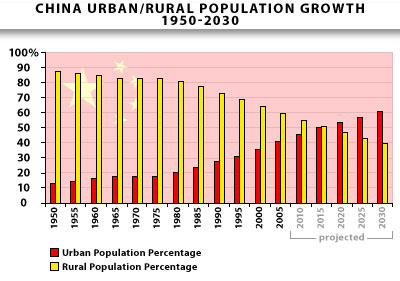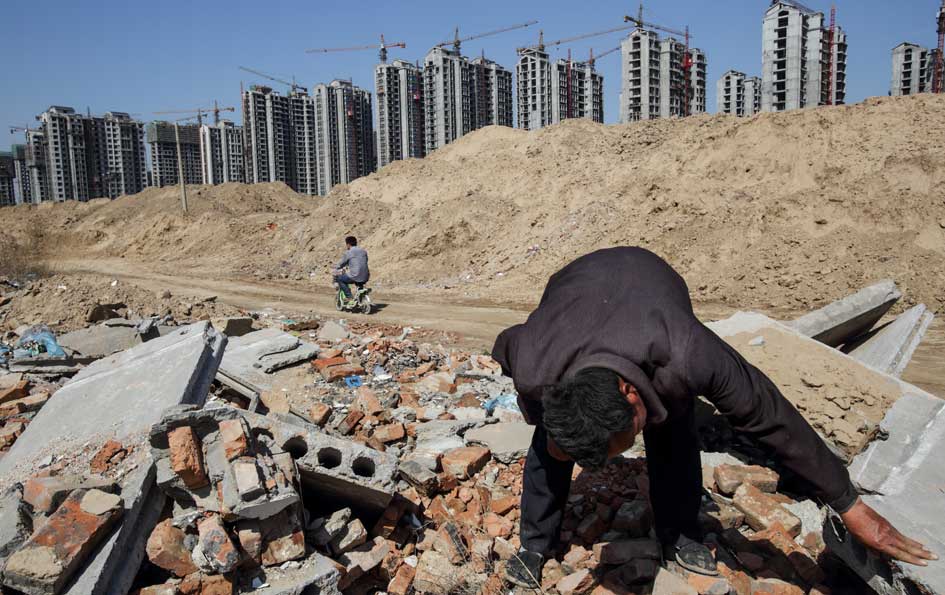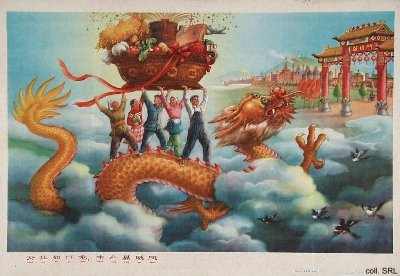Only in a centrally controlled economy could you pull off what China is attempting to do by moving a quarter billion of its people from rural villages and farms to new urban centres. This begs the question – why?
The government argues that there is little value creation in rural populations. They are largely subsistence based. Whereas urban populations create value and stimulate economic development. The government wants to create a domestic consumer market in China for the goods produced by the country’s burgeoning manufacturing sector which today is largely export driven.
But moving people off their lands into endless concrete high-rise apartments does not automatically create a consumer society. There have to be jobs for those who no longer are on farms or providing local services to their rural communities.
The transformation is expected to change the demographics of the country which today is roughly split 50/50. By 2025, however, if the government succeeds that will have changed to 70/30 in favour of urban dwellers.
To facilitate its policy he government is bulldozing villages and paving over farmland forcing rural dwellers to move to the many new cities which have sprouted from nothing in a very short period of time.
There is resistance with growing protests by rural dwellers who despite being compensated for the loss of their land, are fearful of fitting in to a new way of life. The government is giving these forced migrants free accommodation in the concrete highrises like those seen above. But rural skills don’t necessarily translate into urban jobs.
Along with the concrete jungle of apartments, China is building new schools, hospitals and mass transit to accommodate its new urbanites. By 2025 it hopes to hit its target of 900 million living in cities but what will the life of these displaced rural dwellers be like? Will they have the educational skills to transition to urban jobs? Will they be displaced and impoverished and form a new underclass that will resort to an “informal economy” similar to what we are witnessing in the rural to urban migration of the Developing World?
For the Chinese leadership they see an urban dominant population as a great asset in creating a consumer driven economy that is less dependent on exports to create wealth. Urban dwellers will fuel a new Great Leap Forward. Let’s hope that it is not as disastrous as the last Great Leap that China attempted under Mao Zedong, a policy in the late 1950s that caused chaos on a grand scale and was an admitted total failure.












((The government argues that there is little value creation in rural populations. They are largely subsistence based. Whereas urban populations create value and stimulate economic development.))
That is true without question.
((The government wants to create a domestic consumer market in China for the goods produced by the country’s burgeoning manufacturing sector which today is largely export driven.))
That is highly problematic. Yes the manufacturing sector is burgeoning and largely export driven. But the main reason for that seems to be dirt-cheap competent labor. China can only become an urban consumer society by vastly increasing wages. If China vastly increases wages it will lose much of its production costs advantage in global trade. Seems highly unlikely China’s senior leadership is planning that.
Planet wide, hominids increasingly live in a world of electronic virtual reality. The truth of human consciousness is that all intelligence is artificial and all reality is virtual. The rural subsistence peasant in China will be transferred to an urban concrete virtual reality chamber. Robotic machines will work the land from which he was displaced (which will be the case throughout the world). While on the land his peasant body/brain system was lost to the interests of the state and to the world economy. In his concrete urban cubical, strong AI virtual persons can meld with his actual body brain and produce economic value. It’s just another step down the path to Borgworld.
An over-supply of labor in industrial centers puts downward pressure on wages, lowers production costs, and perpetuates China’s global dominance in manufactured goods. The transformation of subsistence farmer to AI host/industrial worker will need electricity, and lots of it. Guess where that electricity will be coming from? One should also note that lime roasting for concrete cement is a major source of atmospheric carbon. The peasant on the land is nearly carbon neutral; in the city he is not only an economic unit, he is also a carbon producer.